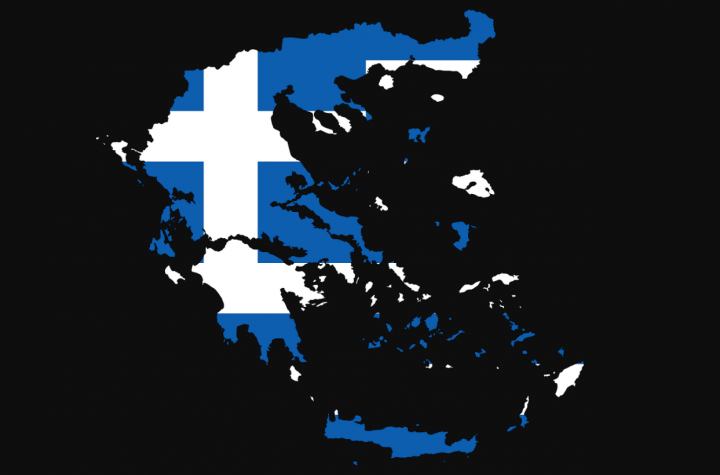Provopoulos the governor of the Greek central banks has, in an interview on the weekend, outlined his strategy for the Drachma if and when the Drachma returns to being the currency of Greece.
The 2 main pillars of Provopoulos’s strategy will be rampant printing of the Drachma and extremely high interest rates.
Provopoulos went on to warn that if Greece leaves the euro, its new currency would probably be devalued by 60 to 70 percent and that there would be a period of hyperinflation and high interest rates.
There are a couple problems that immediately stand out from Provopoulos’s statment.
The first is hyperinflation. For there to be hyperinflation in Greece with the Drachma Provopulos is saying that the central bank of Greece will print so many Drachmas that it will destroy the value of the Greek currency.
Why a central bank would want to destroy the value of a currency is not clear. Such money printing would destroy the purchasing power of the Greek people and also destroy their saving and pensions.
Why a central bank would deliberately do such a thing is not stated.
Provopoulos than goes on to say that at the same time the central bank is deliberately destroying the value of the Drachma it will also set extremely high interest rates, I assume to combat the hyperinflation the bank itself is creating.
Again the motive for a central bank to act in this way is not clear.
High interest rates would make the Drachma a very popular currency considering the low interest rates in the rest of the world. High interest rates would also be a massive incentive for people to save rather than to get into debt which would free up capital for businesses.
Why a central bank would want to undermine high interest rates with out of control money printing is not stated.
Provopoulos then goes on to state something else which I also find very confusing
Speaking to Sunday’s Kathimerini, Provopoulos said that Greece would go through a painful transition phase if it exits the euro. “Given that our country relies to a large extent on euros, for which foreign currency — not drachmas — would be needed, there would be some significant shortages,” said the central banker.
Provopoulos is stating that the central bank of Greece, although it would be managing the value of the Drachma, would not manage the Drachma is such a way that it will be exchangeable with other currencies, at least not initially and at least not in sufficient quantities.
For some reason the Greek central bank is saying that if/when Greece returns to the Drachma the central bank will not manage the Dracham is a sufficiently responsible way to allow Drachmas to be traded for foreign currencies.
And because Greek will not be able to exchange their Drachams for a foreign currency Greeks will not be able to buy products from outside Greece. Or at least not be able to exchange sufficient quanities of Drachmas in order to be able to purchase the basic needs of a country.
Why a central bank would decide to manage a currency in such a reckless manner is again not made clear in the interview.
On the effects of the reckelss management of the Greek currency Provopoulos stated the following as the consequences
“These shortages would include fuel, raw materials and even agricultural products. Schools, hospitals and public services would have difficulty operating. There would be fuel shortages so the police and army would not be able to use their vehicles.”
And not only would there be shortages of life’s necessities, Provopoulos goes on to state the the central bank of Greece will be extremly slow to act in such bad circumstances and would not print the new Dracchma fast enough.
Provopoulos suggested that it would take “some time” before the situation could improve and stressed that it takes quite a while for any new currency to circulate, meaning that bartering could become widespread.
How at the same time there is hyperinflation there could also be such a shortage of a currency that people would have to barter is not made clear. The only obvious explanation is that the central bank will intially print Drachmas at a very slow rate and then at a later time print too many Drachmas too quickly devaluing the notes, so much people use them to heat their homes.
Provopoulos also says in the article that the deliberate mismanagement of the Drachma by the central bank of Greece will be responsible for the following
Bank of Greece Governor Giorgos Provopoulos warned that if it returns to the drachma, the country would go through several years of “real hell,” saying it would be like going back to the 1950s.
As I have stated in other articles, I am not sure how a change to the Drachma will lead to the advances in technologies being taken away from the people living in Greece.
In summary the governor of the central bank of Greece has effectively said that if Greece were to return to the Drachma that the central bank will deliberately destroy the value of the Drachma which will send Greece back 50 years and will lead to several years of “real hell”.
So I am assuming the whole purpose of the interview was to persuade Greeks that going back to the Drachma is simply not an option and also that the only thing that can stop Greece from going back to the Drachma is doing as the banks say.
The Problem Reaction Solution Paradigm (The Hegelian Dialectic)
1) The government creates or exploits a problem blaming it on others
2) The people react by asking the government for help willing to give up their rights
3) The government offers the solution that was planned long before the crisis
Whenever an extremly powerful person in a country, and especially a person that controls the currency uses terms like “real hell” and “send Greece back to the 50’s” without explaining in detail the reasons for such dramatic terms it makes me think that there actually is no logical argument for that persons postion.
If that person’s position really were reality, a simple explantion would be all that is required to get people to believe in the plan.
When no explanation is put forward and instead dramatic and threatening terms are used instead it makes me wonder if actually the reaction that the person in power is trying to instigate is not actually in the interests of the people at all.
I find it hard to believe however that a central bank governor would threaten the popeulation of a country so blantanlty so I can only assume that the translation from the original article is misleading.
If you read the original article in Greek and can point out the errors in the translation please let me know and if you have any comments on this article in general please feel free to leave them below, you do not need to create an account.




I have a pretty old Greek Drachma.. can i exchange it if the currency returns whatsoever?
I have no idea, personally I would keep a note, it might be worth more in the future. Seriously though, if you want to change it, I would go to a bank and ask them.